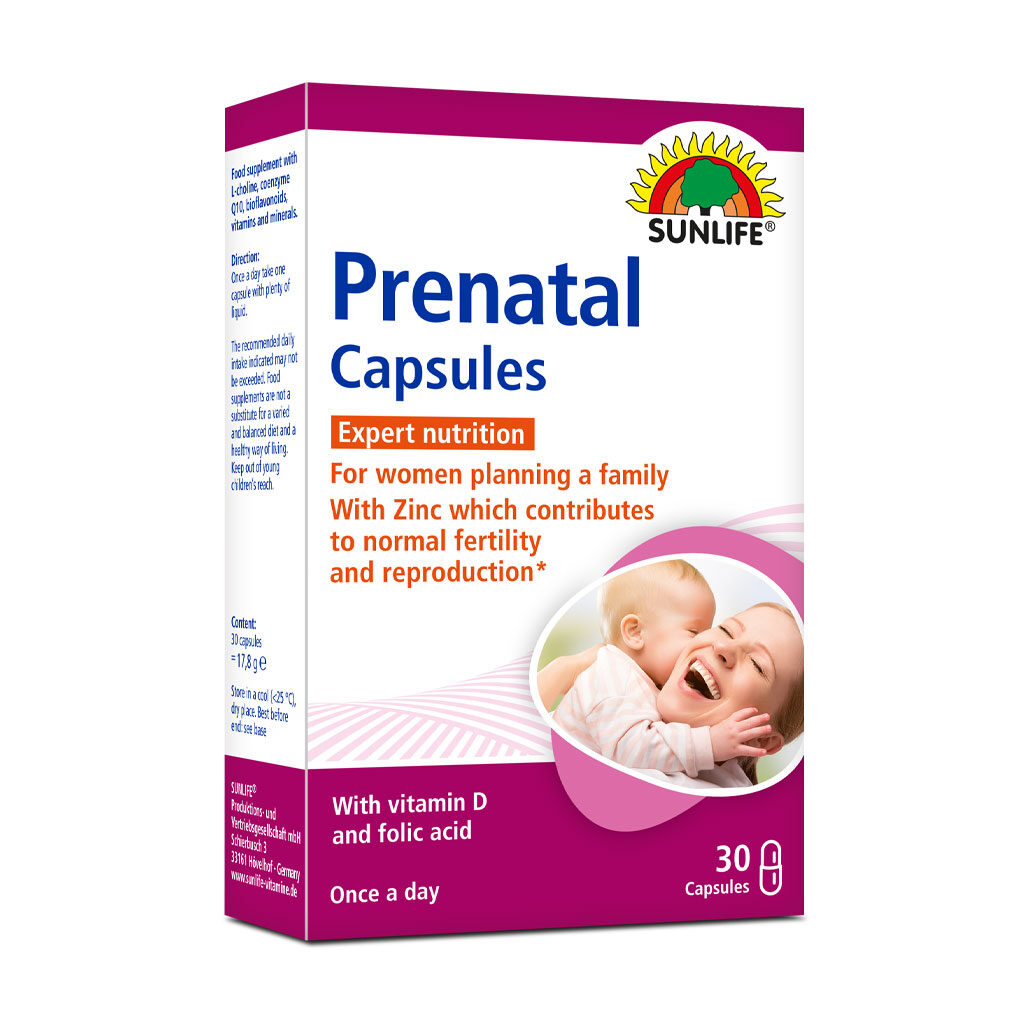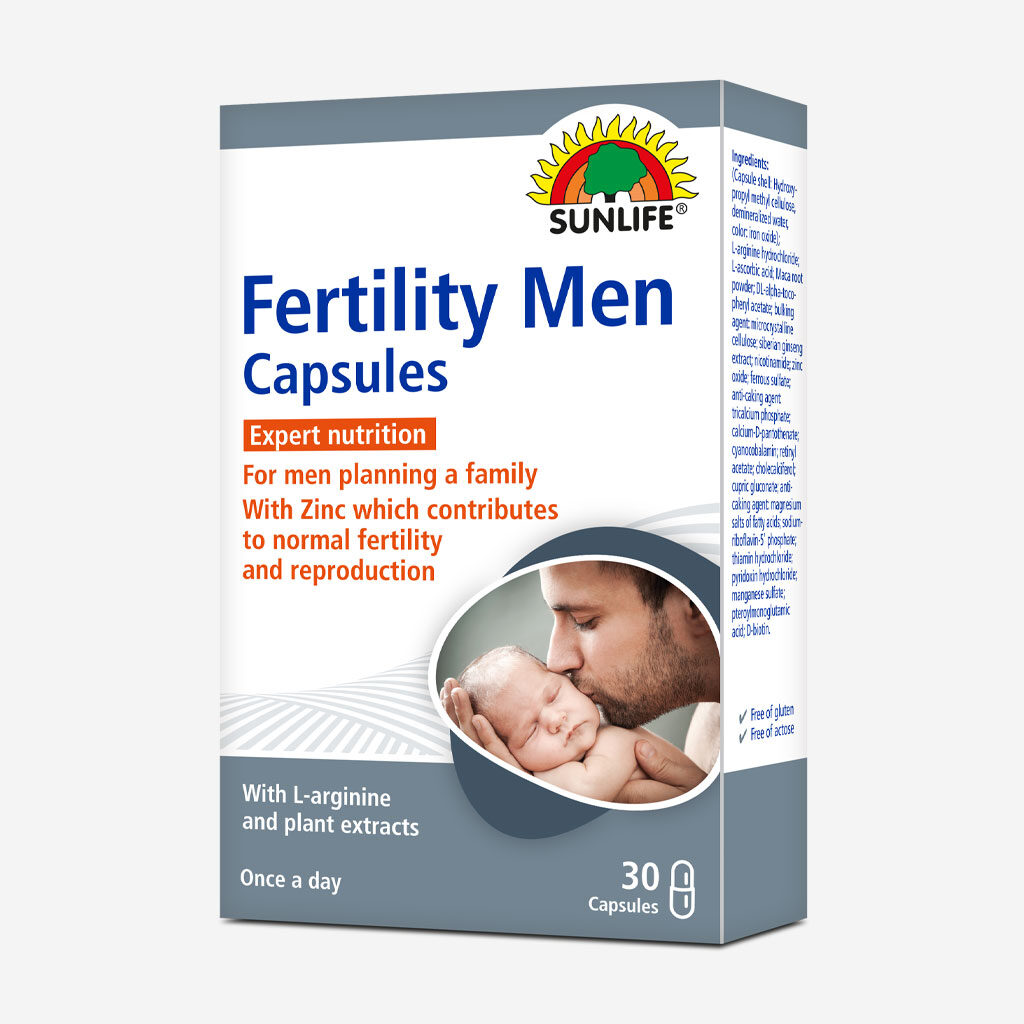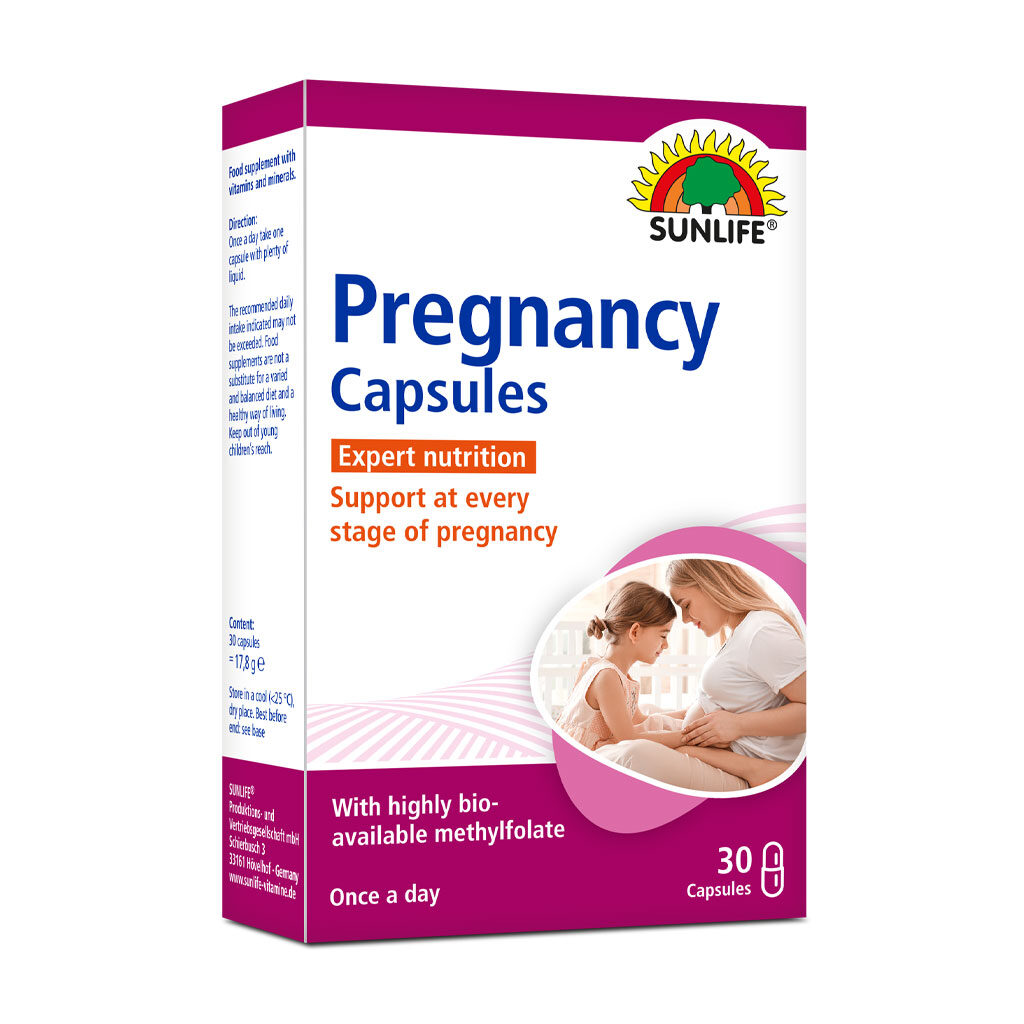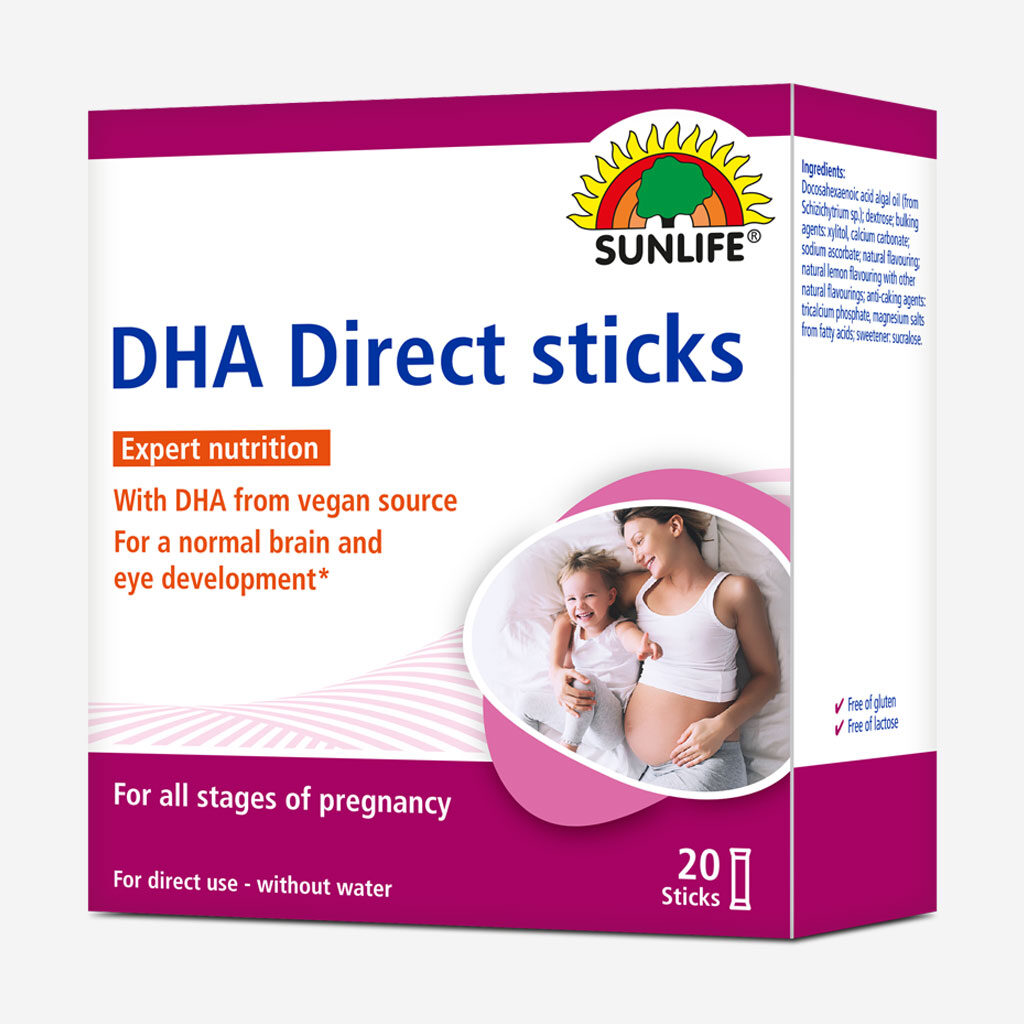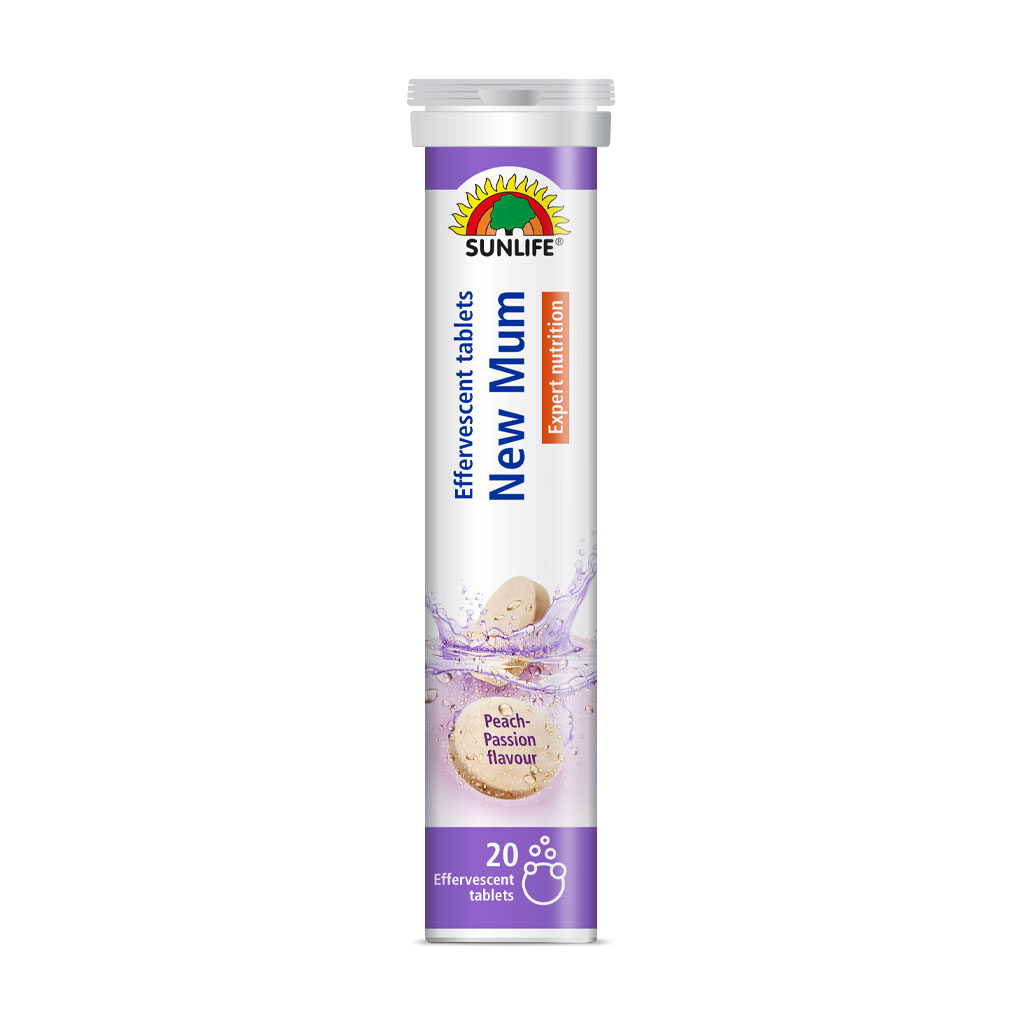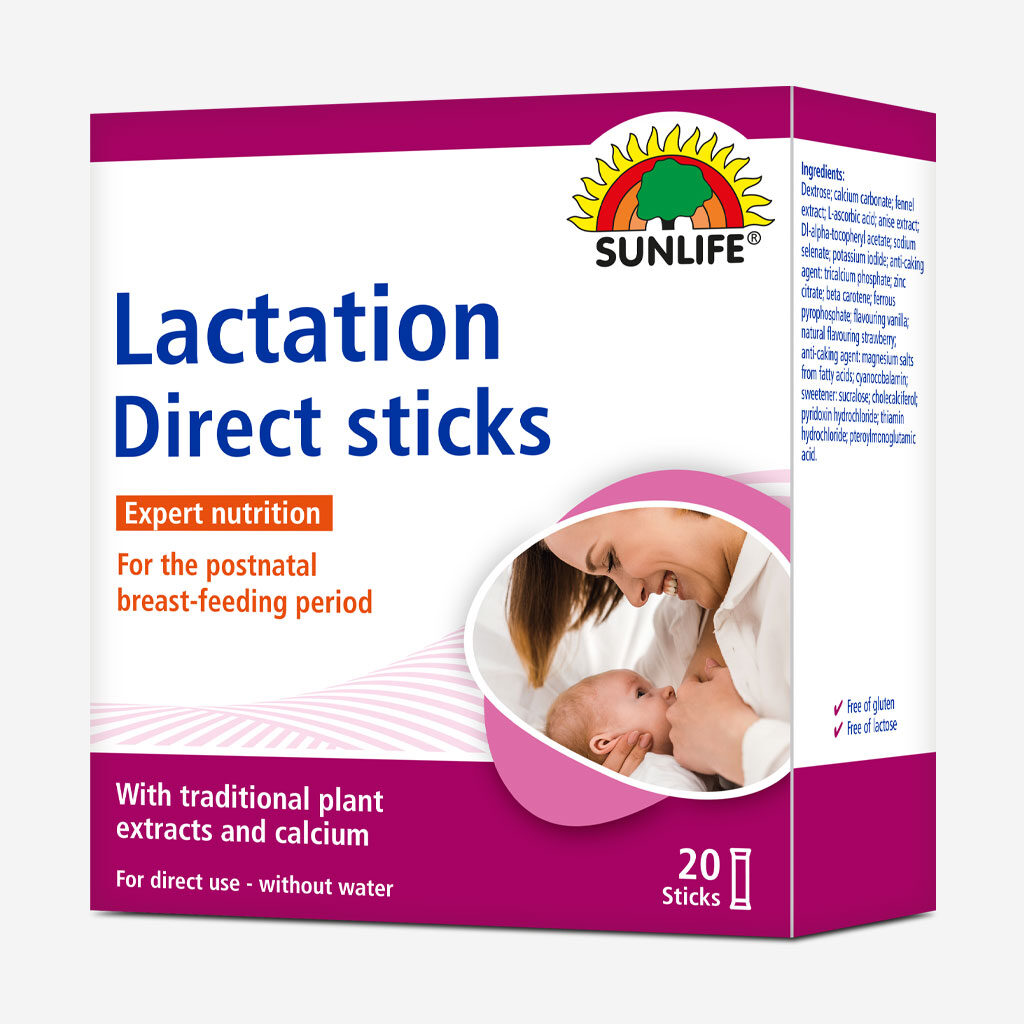Expert Nutrition
Nutrient intake before, during and after pregnancy
Maintaining a healthy diet and lifestyle can sometimes be a real challenge. Especially when it comes to child planning and pregnancy, the sufficient intake of the right nutrients is very important. Here, a few nutrients deserve special attention. These are:
- Folate/Folic acid – Prevention of birth defects
Folate (present in the form of folic acid in supplements) belongs to the group of B vitamins and helps to prevent neural tube defects which lead to abnormalities of the babies brain and spinal cord. Supplementation with Folic acid has been also shown to decrease the risk of premature birth. Ideally, folic acid supplementation is already started three months before conception to ensure the body gets enough of this essential nutrient.
- Vitamin D3 / Calcium
Since vitamin D is only found in small number of foods, especially in eggs, red meat and oily fish, which are often avoided by pregnant women, a supplementation of vitamin D is particularly important.
Vitamin D has a positive effect on the nervous system, muscles and the immune system. It supports the growth of the baby’s bones and teeth by leading to a better absorption of calcium as the most important building block. A sufficient calcium intake (and absorption) is not only important for the fetal development, but also for the mothers’ health. Pregnant and lactating women without a sufficient calcium intake may suffer later in life from diseases such as osteoporosis.
- Iron
During pregnancy the risk of iron deficiency anemia a condition where the body does not produce sufficient amounts of red blood cells to carry adequate oxygen to the tissues, is increased. Pregnant women need double the amount of iron because they need blood additionally for carrying oxygen to the baby. If this blood cannot be produced due to a lack of iron, premature birth can be a consequence.
- Iodine
Iodine is an essential trace element for the production of maternal and fetal thyroid hormones which regulate the development of the fetal brain and nervous system. The iodine requirements of pregnant women substantially increase to ensure adequate supply to the fetus. Depending on the timing and severity, insufficient iodine intake may increase the risk of perinatal and infant mortality and intellectual impairment. In the last centuries, salt iodization programs helped to overcome the global iodine deficiency. However, for people trying to avoid sodium-rich nutrition and for pregnant women who have an increased need for iodine, iodine-rich supplements are a valuable addition.
- DHA
Docosahexaenoic acid (DHA) is an omega-3 fatty acid with a critical role in brain, skin and eye health and development. DHA cannot be produced by the body in significant amounts and is only found in a few foods such as fatty fish. Especially during pregnancy, when the bodies need for this fatty acid is increased, a sufficient intake can be a challenge. That’s why doctors often recommend a DHA supplement before, during and after pregnancy.
Beside its importance for the development of the fetal organs, DHA can also help to prevent preterm labor and ensure a healthy birth weight. Moreover, it supports a mother’s mood during the postpartum period.
To cover the daily needs of these and other important nutrients SUNLIFE® has developed a Pregnancy Range that optimally accompanies every stage.



